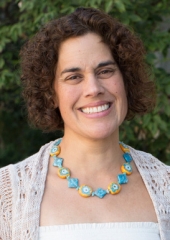Karl Pillemer is Hazel E. Reed Professor in the College of Human Ecology’s Department of Human Development and professor of gerontology in medicine at Weill Cornell Medicine. In this video, Dr. Pillemer addresses concerns facing older adults as a result of the pandemic. In a recent New York Times article, he predicts that the pandemic will radically alter the delivery of eldercare. Dr. Pillemer expects older adults will increasingly choose to remain in their own homes, rather than receive care in nursing homes, which currently house more than 1.5 million Americans. The alarming and disproportionate rate of mortality in nursing homes due to COVID-19 reflects the ease with which the virus spreads between carers and residents in close proximity and older adults' vulnerability to infection. Dr. Pillemer calls for a change in the design of nursing homes in the U.S. with a particular focus on private rooms. He also believes that seniors in nursing homes need to be included in discussions about restrictions on visits from family members. In addition to addressing infection risk within nursing homes, Dr. Pillemer and colleagues have written an op-ed for the Journal of the American Medicine Association, urging the inclusion of long-term care facilities in models of COVID-19 spread.
Despite this seemingly dire moment in American history, Dr. Pillemer believes we can draw strength from the wisdom of older adults who have endured equally challenging events in the past. In this podcast, he provides insight from his interviews with seniors as part of his Legacy Project that can inspire us during the COVID pandemic.
Journal article referenced in this story:
Pillemer, K., Subramanian, L., & Hupert, N. (2020). The Importance of Long-term Care Populations in Models of COVID-19. Jama. doi:10.1001/jama.2020.9540


